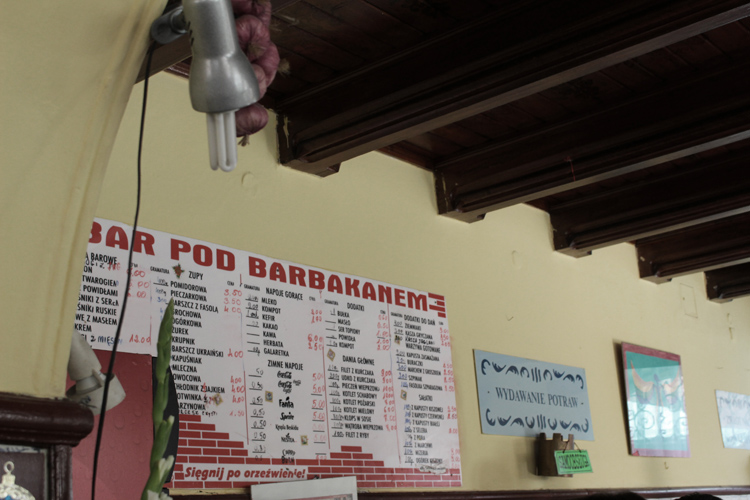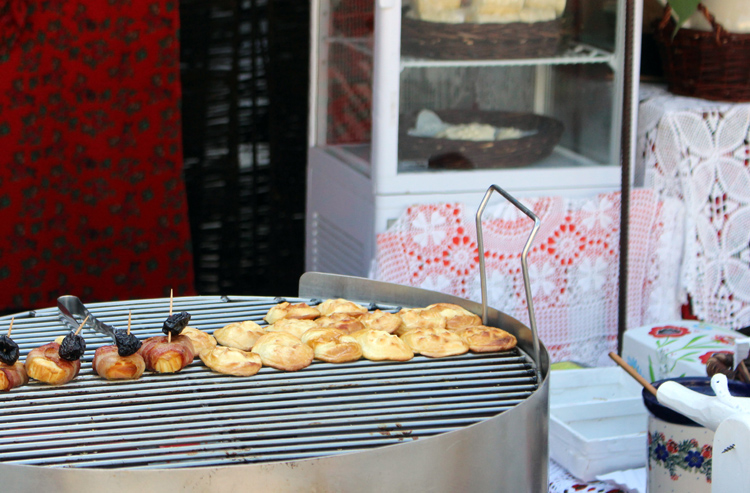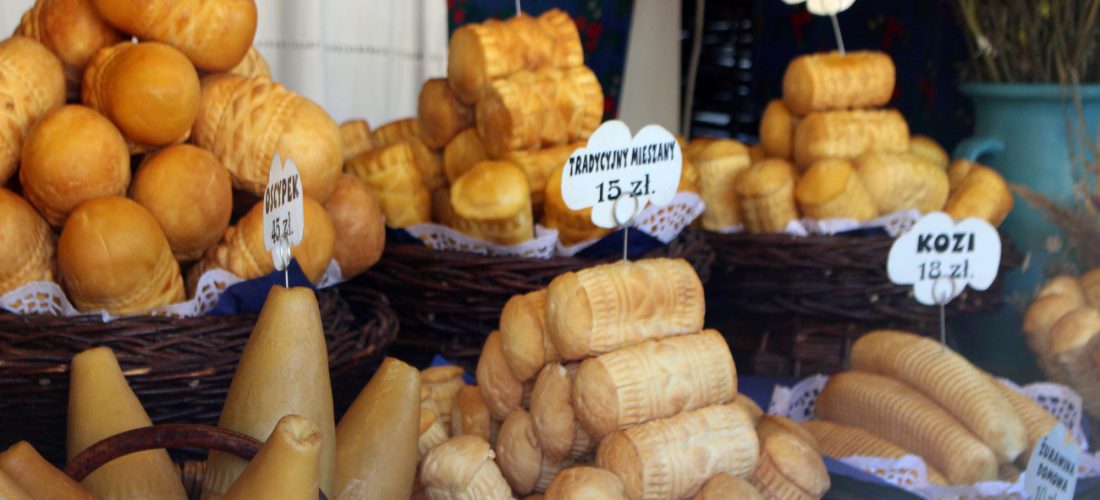The best way to experience Polish food is going to a milk bar (bar mleczny), a former Soviet institution offering cheap Polish food. Mostly aimed at workers and poor people, anyone could come in. Dairy products and other typical Polish dishes were served (hence the name).
Nowadays, milk bars have made a comeback and have conserved their former attitude with low prices and reasonably good food. The interior reeks of Soviet nostalgia, cheaply decorated with fake flowers and plastic furniture. Plates and trays come in bright colors and with non-matching cutlery. Don’t expect an English menu or even English speaking people and be prepared to get the death stare from the cashier lady and the lady at the serving counter. There are two strategies for going into a milk bar: Either look up the items on the menu before you get in line or order anything from the list and get a surprise meal. I got some pierogis and a beetroot soup, but they had two different kinds of beetroot soup and this was not the one I wanted =(



Polish dishes are hearty and filling, matching their rough climate and need to fill many stomachs with little food. Therefore, soups are widely popular, as well as potatoes, cabbage and sausages. Traditional food isn’t really refined cuisine, the main goal was to avoid being hungry. When I ordered a Kielbasa and cabbage dish, the vendor asked me if I wanted any bread to go with it. ‘Sure, why not?’, and so I ended up with this:

At the market, you can try some Oscypek, a cheese made of sheep milk, shaped into different forms and then cured and smoked. They are served hot with cranberry sauce or wrapped in bacon as a snack. The cheese is extremely chewy with an almost rubbery texture and tastes very, very smoky.




But of course since the fall of the Iron Curtain, Poland has been influenced by world cuisine and western food. Although hard to find at first, newer gastronomic additions like vegetarian restaurants and Vietnamese noodle shops are becoming more and more popular in the cities.

falafal wrap in a vegetarian restaurant

pho for breakfast

a rather good looking crêpe

